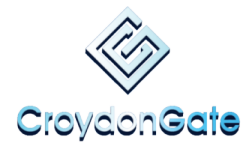10 Tips to Make Meetings More Productive
Meetings can go one of two ways. A meeting can be a productive forum where great ideas get shared and good decisions get made. Or a meeting can be a long, drawn-out affair that achieves nothing at all. What many people seem to forget is that meetings cost money. Everyone who is sitting around the table at a meeting is earning a salary. And, while employees are sitting there, they are not doing the job that they are getting paid to do. You can’t ditch meetings altogether. You can, though, make sure that meetings are effective. Here are ten tips on how to manage meetings to make them more productive.
- Only Hold Meetings When it is Necessary
Always ask yourself if a meeting is the most efficient way to achieve your goal. Could you achieve the same goal with emails? Or would a quick, informal meeting at someone’s desk suffice? Formal meetings can take up an inordinate amount of time. Speakers will need time to prepare. Someone will have to arrange the meeting. And someone will need to take the minutes of the meeting. If an email will have the desired effect, it will much cheaper and less time consuming than a meeting.
- Only Invite Relevant Personnel
Only invite people to a meeting if they have something to contribute or something to learn. There is no point having twenty people at a meeting if the topic is only relevant to five of those people. Keeping the numbers down will make most types of meetings much more productive.
- Keep Meetings Short
Meetings that last for more than one hour will get less productive as more time goes by. In fact, people’s attention will wander after only fifteen minutes. If there are lots of topics to discuss, it would be better to schedule several short meetings. Short, very focused meetings will also allow you to invite only the relevant people.
- Have an Objective Focused Agenda
Write an agenda for every meeting you hold, and make sure that you stick to that agenda. If the meeting strays off-topic, it will waste time and you may not achieve your goals. The agenda should list all the items for discussion and have time allotted to each topic. Attendees should have a copy of the agenda in advance of the meeting. There should also be minutes taken at a meeting that include assigned action points. All those who attended the meeting should receive a copy of the minutes.
- Enforce a No Phones and No Laptops Rule
Attendees at a meeting should switch off their phones and leave their laptops at their desks. That rule should apply to the senior members of the team as well as the junior ones. If people are multi-tasking, then they are not paying attention. Phones and laptops are a distraction that will make meetings less efficient and more time-consuming.
- Hold the Refreshments
The only refreshments that anyone will ever need a short meeting is water. So, skip the coffee, muffins, and pastries. Refreshments cause delays and they distract people from the business at hand. In the time it takes for everyone to get their coffee and snacks, you could have ticked off an item on the meeting agenda.
- Put the Important Topics at the Top of the Agenda
In the first fifteen minutes of a meeting, people will be more alert and paying more attention. So, when you are preparing your agenda, make sure that the most important topics are at the top of the running order. Covering the important topics first will also ensure that those topics are not missed if other topics overrun their allotted time.
- Don’t Allow Grandstanding
A meeting should be a collaborative event, not a one-person show. Some people are not as confident as others, but they may still have valuable points to make. Every meeting should have a chairperson who controls the proceedings. It is the chairperson’s responsibility to ensure that everyone gets an opportunity to contribute to the meeting.
- Do Not Disturb!
If a meeting is going to last only an hour or less, there should be no need for anyone to interrupt the proceedings. If a person gets called out of a meeting, it wastes everyone else’s time. So, make a rule that meetings are do not disturb events. Meetings should only get interrupted if there is a real emergency.
- Lead Meetings
Meetings need direction, so someone needs to lead the proceedings. The chairperson should keep the meeting running to the agenda and to time. If the meeting is not controlled, the discussion will wander off-topic. If that happens, the meeting will overrun, and important agenda items may get missed.
Meetings do have a part to play in the efficient running of a business. Even so, meetings are not always the most efficient way of communicating with a team. So, you should ask yourself first if a meeting is necessary at all. If a meeting is the best option, then keep the meeting brief, controlled, and to the point. And keep the attendee list down to those who need to be there.







